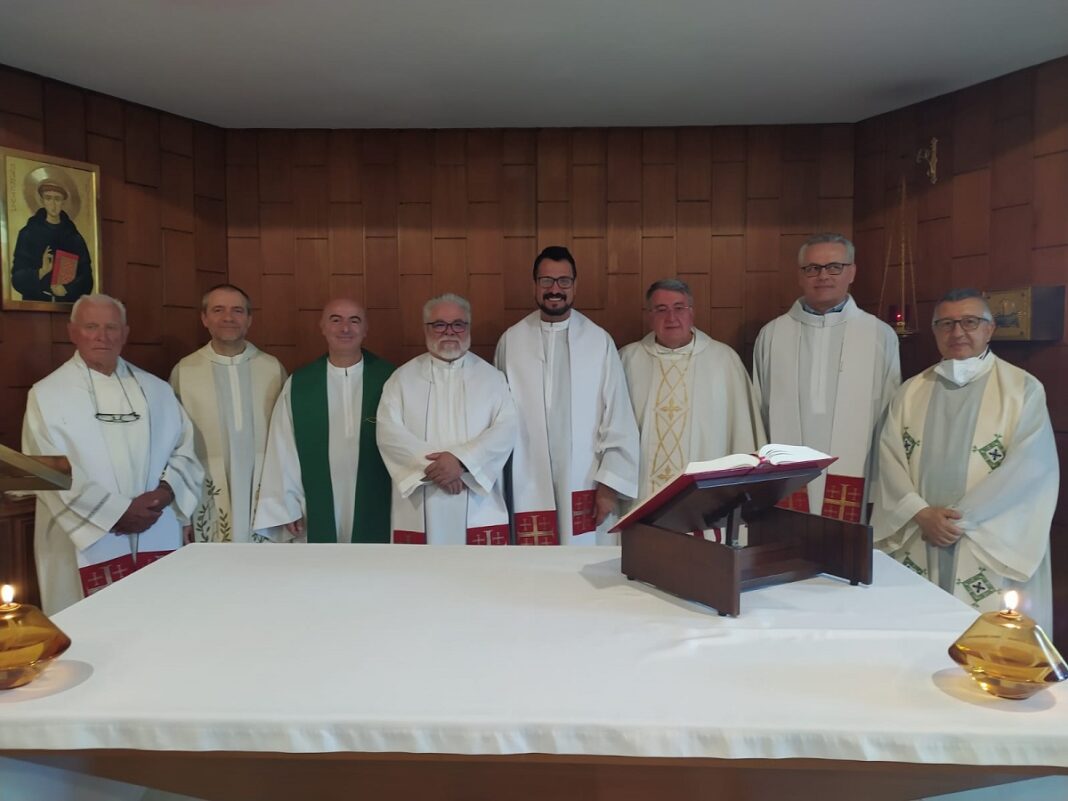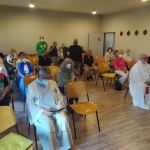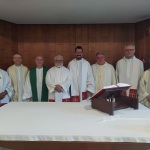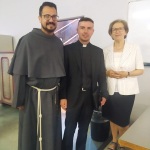On June 17-19, 2022, representatives of the Militia of the Immaculata (M.I.) from all over Italy gathered at the Seraphicum College in Rome for a formation seminar.
In the evening of the first day, all of the participants prayed the Rosary and Compline together, entrusting themselves to Mary Immaculate and asking, through her intercession, for special graces regarding personal and community situations, and in particular, situations facing the world.
On Saturday, the second day, Father Luigi Maria EPICOCO gave a talk on “Communicating and Relating in the Gospel.” He began by explaining who saints are and the Marian way of becoming a saint. Saints are saints because they fully lived their lives in their day and are an inspiration to each of us. A Christianity that passes through Mary is a human and humanizing Christianity. A mother offering things that are true to her child humanizes them. Maternal love makes it possible to take even the bitterest medicine. The Gospel, when it is not passed to us in a humanizing way, can be unbearable. A person may even be frightened by the radical nature of the Gospel. However, God has invented a way of passing the Gospel on to us in a humanizing way: it is the Marian way. God’s means of proclaiming a humanizing Gospel is the Church; the Church does this when she resembles Mary. The Church must be mindful of resembling Mary in order to pass the Gospel on to the world, which might otherwise be unbearable without this humanizing human love. Each of us transforms the Gospel into Mary. Our personal conversion is a way of reforming the Church by first transforming ourselves.
Father Luigi also spoke about communicating the Gospel. If the proclamation of the Gospel is the good news that “we are loved,” we need to ask ourselves whether we have known and experienced that love; otherwise, we proclaim things we have neither known nor felt. Communication is not an exchange of information; it is about a relational exchange, a way of inviting people into relationship, and that relationship needs to be made real.
Later that afternoon, Saturday, June 18, Father Kolbe Missionary Lucia CATALANO presented a talk entitled “The M.I. on the Internet: Challenges and Opportunities.” Formation now has changed: we are all invited to take part in “self-formation” because the main content is already on the Internet. Sometimes, however, we do not know where and how to look for that content. It is not so easy finding a message for us in every event, or discovering a story we can tell in every meeting, even virtual ones. On the Internet, we may establish relationships that are different from the ones we experience in person, but they are still relationships. God is also present in this virtual space. How many more means of social communication are there today than there were on October 16, 1917, when St. Maximilian founded the M.I.? These new means exist: we would do well to use them to communicate what is good. It is a challenge and it is important not to be afraid of challenges. It is no longer relevant to ask ourselves whether or not we should use the Internet. We must learn to use these new means of social communication in order to make them available as tools in evangelizing more effectively.
On Sunday, June 19, the last day of the meeting, Friar Raffaele DI MURO, Dean of the St. Bonaventure Theological Faculty and former M.I. International President, made some opening remarks. Then, the M.I. National President for Italy, Ms. Margherita PERCHINELLI, gave a talk on “The Responsibility of Government in the M.I.” She took up the ideas expressed by Pope Francis on September 16, 2021, during his Discourse Addressed to the Participants in the Meeting of Moderators of Lay Associations, Ecclesial Movements and New Communities, entitled “The Responsibility of Governance in Lay Groups.” Positions of governance are a call to serve. However, there are obstacles to serving that must be overcome, namely, power, the lust for power, disloyalty and lack of transparency.
Next, Friar Salvatore Maria PULIZZOTTO, OFM Conv., recently elected M.I. National Assistant for Italy took the floor and left everyone with a very valid motto: “Observe experience and learn.”
Finally, Friar Gilson Miguel NUNES, OFM Conv., the M.I. International Assistant, posed some questions on the personal and community level, regarding identity, communion, communication and missionary work.
The formation seminar ended with Sunday Mass celebrating the Solemnity of the Most Holy Body and Blood of Christ. All of the participants returned to their homes having been enriched by the seminar material and true, deep relationships.
Anna GAWEŁ

















